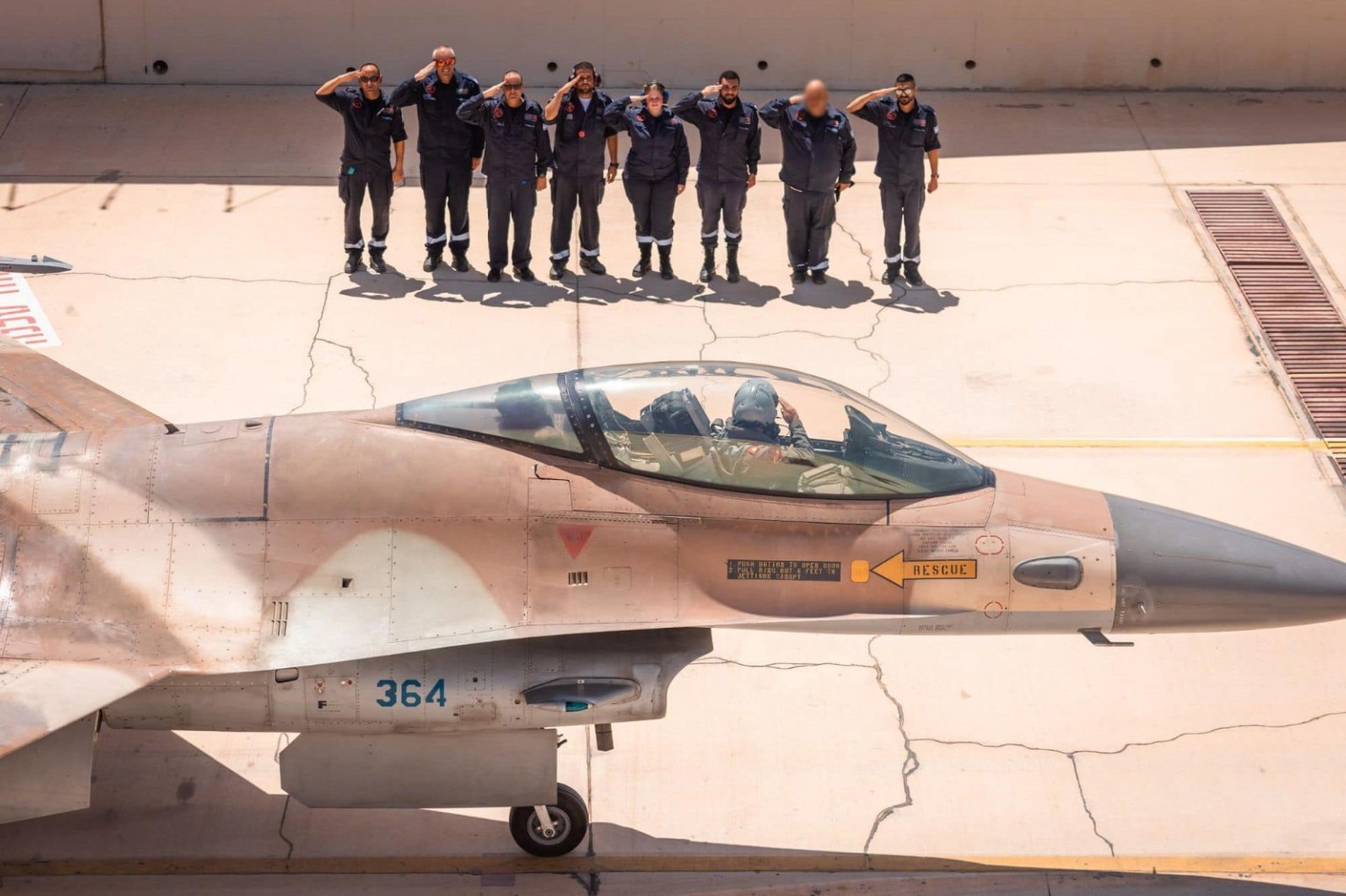Israel Retires F-16 ‘Barak’ Fighters, Greece Decommissioning Its Fighting Falcons – Is Ukraine Set For Another Boost?
Israel has officially bid farewell to its last operational F-16C Fighting Falcon aircraft, marking the end of an era that spanned over three and a half decades of service.

The retirement ceremony was at Ovda Air Base, the final operational unit of 115 Squadron. The F-16C, a variant of the renowned Lockheed Martin F-16 Fighting Falcon, has been a cornerstone of Israel’s aerial defense capabilities since its introduction in the 1980s.
Named ‘Barak,’ which translates to ‘Lightning’ in Hebrew, these agile and versatile aircraft have played crucial roles in various military operations and defense strategies.
“The end of the ‘Barak 1′ era as the last single-seat aircraft, which faithfully served the IAF’s (Israeli Air Force) squadrons for over three and a half decades, was withdrawn,” the IAF stated.
In a tribute on X (formerly Twitter), the IAF expressed, “The Air Force separated from the single-seater “Barak 1” aircraft. The members of Squadron 115, who operated the planes in recent years, say goodbye with a salute and prove once again the deep connection that exists between man and machine.”
The Barak-1, a variant of the F-16 Fighting Falcon, was tailored to meet the specific needs of the IAF. According to Janes, the IAF operated 81 F-16Cs at the height of its operational life. This retirement follows the earlier withdrawal of 90 F-16A/B Netz fighters in December 2016.
With the F-16A/B already retired in favor of the Alenia M-346 Lavi for training roles, the F-16C’s retirement aligns with the IAF’s ongoing transition to the more advanced Lockheed Martin F-35A Adir.
Despite retiring these older models, the IAF still operates 47 F-16D Brakeet twin-seat operational trainers and 97 F-16I Sufa twin-seat combat variants.
The retirement of these fighter jets, known as Barak-1 in the Israeli Air Force, could potentially open new avenues for their deployment, particularly in the ongoing conflict in Ukraine.
Gareth Jennings, a defense expert and seasoned aviation journalist, highlighted the potential of these retired Israeli F-16C Barak-1 jets as a source for Ukraine. Acquired in the 1980s, these Block 30/40 jets, while not as advanced as the Block 50/52, could serve as useful attrition replacements or spare platforms.
Jennings acknowledged the complexities and uncertainties surrounding Israel’s potential support for Ukraine. Nevertheless, he emphasized that adding these retired jets to the global surplus pool could indirectly benefit Ukraine by allowing other nations to contribute their surplus F-16s more freely.
While diplomatic and logistical challenges remain, securing these aircraft could significantly enhance Ukraine’s capability to counter Russian air power in the ongoing conflict.
Greece Could Deliver 32 F-16 Fighters To Ukraine
In addition to Israel, Greece has emerged as a potential source for Ukraine to acquire F-16 fighter jets. Al Jazeera, citing sources, reported that Greece planned to decommission 32 older F-16 Block-30 aircraft and transfer them to Ukraine.
The Greek government reportedly preferred to sell these aircraft back to the United States, where they could be modernized before being delivered to Ukraine.
Greece is also pursuing an upgrade of its air force capabilities. The US Congress has approved the sale of up to 40 fifth-generation F-35 multi-role aircraft to Greece. Additionally, Greece plans to upgrade 82 of its F-16s to the Block-70 standard and acquire 24 fourth-generation Rafale jets from France.
Meanwhile, Denmark, Norway, the Netherlands, and Belgium have committed to providing Ukraine with over 60 fighter jets this summer. However, Bloomberg reported on July 12 that Ukraine might receive significantly fewer aircraft than expected this year—possibly just six this summer and up to 20 by the end of 2024.
Ukrainian President Volodymyr Zelensky has expressed concern, stating that the available aircraft might not be sufficient to match the Russian air fleet’s strength, though they would still be beneficial.
The 32 F-16s from Greece could help address this shortfall, but some military experts have reservations about transferring such a significant number of jets.
They cite security concerns, given Greece’s geopolitical situation, which necessitates maintaining a strong air force.
An anonymous air force engineer told Al Jazeera that giving away 32 F-16s could create a substantial gap in Greece’s air capabilities. He noted that a robust air force requires a quorum of around 200 aircraft, a threshold that would be hard to meet with fewer, more modern, costly jets.
EurAsian Times







